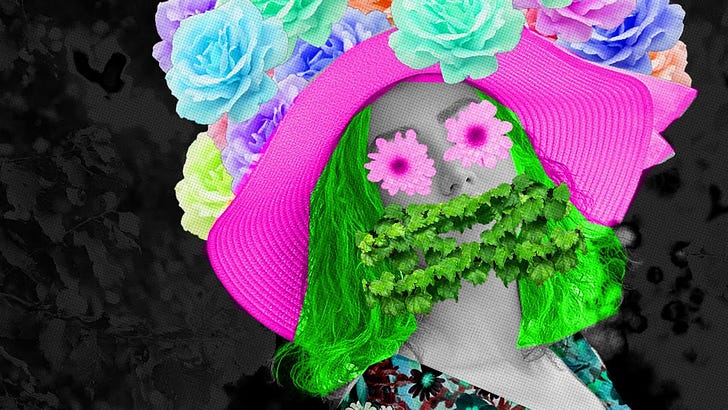A Digital Neutopia
Technology has enriched our lives in so many ways.
We can explore almost every inch of the world without getting lost.
It is much easier to stay in contact with old friends from high school.
Machines can even perform delicate medical procedures with unprecedented accuracy.
But there’s a downside.
As screens grew more helpful, they weaseled their way into our lives, burrowing into our souls. We replaced meaningful human connection with cyberstalking our ex in the hopes they got fat or married someone ugly. We push our relatives aside in favour of relative strangers, liking their doctored holiday snaps.
And worse yet, we see the effortless workload of others, who just casually wrote fifteen books this week while on vacation by the glistening waters of the French Riviera with their zero-percent-body-fat spouse and well-behaved children.
And why did they achieve this success?
Because they hustled.
They worked around the clock, and you didn’t. It’s that laziness that stopped you from achieving success, right?
Before you know it, you’re wondering if there might be something wrong with you.
We as writers are susceptible to this mindset.
We know Stephen King writes at least three books a year, and if we head into the indie space, we have built this narrative that we need to write books as content at least every month if not sooner—forgettable chunks of throwaway entertainment.
Fast food fiction.
We have to keep up with the Joneses (or the Kardashians, or whoever the fuck we’re supposed to keep up with these days). But the answers to our modern creative dilemmas isn’t to bury our heads and keep churning out ‘content’. That will do nothing but drive us straight into the arms of burnout.
The exact opposite is the way forward.
Chronic Distraction and the Myth of the Hustle
The irony that I’m delivering this message to you over a social media platform isn’t beyond me.
Social media isn’t harmful in theory. It could improve our lives. The internet amplified writer’s voices and I wouldn’t want to diminish that. The problem is people weaponised the platform to inflict this harm upon us.
So what is the solution?
I’m not suggesting a complete digital detox, but it is important to acknowledge the hold the internet has over us. We have seen people fall into full-blown panic because these sites have gone down for a few minutes. We glue ourselves to screens, watching enough bullshit influencers until we eat up the lie. And for creatives, that lie is the myth of ‘more is more’.
No burden is too heavy for your shoulders.
No output is too high for your tired brain.
You published a book this week, you’d better publish next week or everyone will forget you and your whole life was a waste.
This is not only counterproductive, but harmful.
Maybe you think I’m full of shit.
People on Instagram proved you can live this dream. They pose for photos with their new books every month. Everyone praises them for how amazing they are, bleating about how they “Just don’t know how they do it.”
But it’s all bullshit (even if it’s true).
A dedicated team work with these authors to achieve this rapid publishing goal. But since we only witness the highlights, it seems as if they alone built their empire. We never experience the sacrifices they had to make in their professional or personal lives to achieve this success.
Remember the next time you see someone’s success on social media, you’d be lucky if you got half the story.
The Creative Power of Nature
So we need to push aside comparisons and look at what generates creativity.
The answer to these problems is to recharge our creative energy with nature.
Countless studies have shown the link between nature and improved cognitive function.
The University of Utah published a study in 2012, which discovered people showed fifty percent better creative skills after spending four days in nature. Without the constant pings and alerts, the subjects had increased focus and stamina—without mental fatigue.
And it isn’t an isolated study.
Rachel and Stephen Kaplan of The University of Michigan wrote on the Attention Restoration Theory. We are bombarded with messages and notifications and internet rabbit holes we didn’t care about in the first place.
It’s overwhelming.
Compare that to the natural rhythm of the forest. The gentle rustle of leaves and the twitter of bird songs. Just being out in nature allows us a chance to step off the merry-go-round for a moment. And when you do, your priorities start to snap back into focus. Our brains reset. Just a twenty minute walk around in nature can do wonders for your mind (and your body since our reliance on technology has minimised our exercise time, too).
So, what’s the takeaway?
Let’s remember to show ourselves kindness.
Stop comparing ourselves to others’ outputs and focus on energising ourselves with breaks and nature walks.
Tell me about your experience in the comments.






